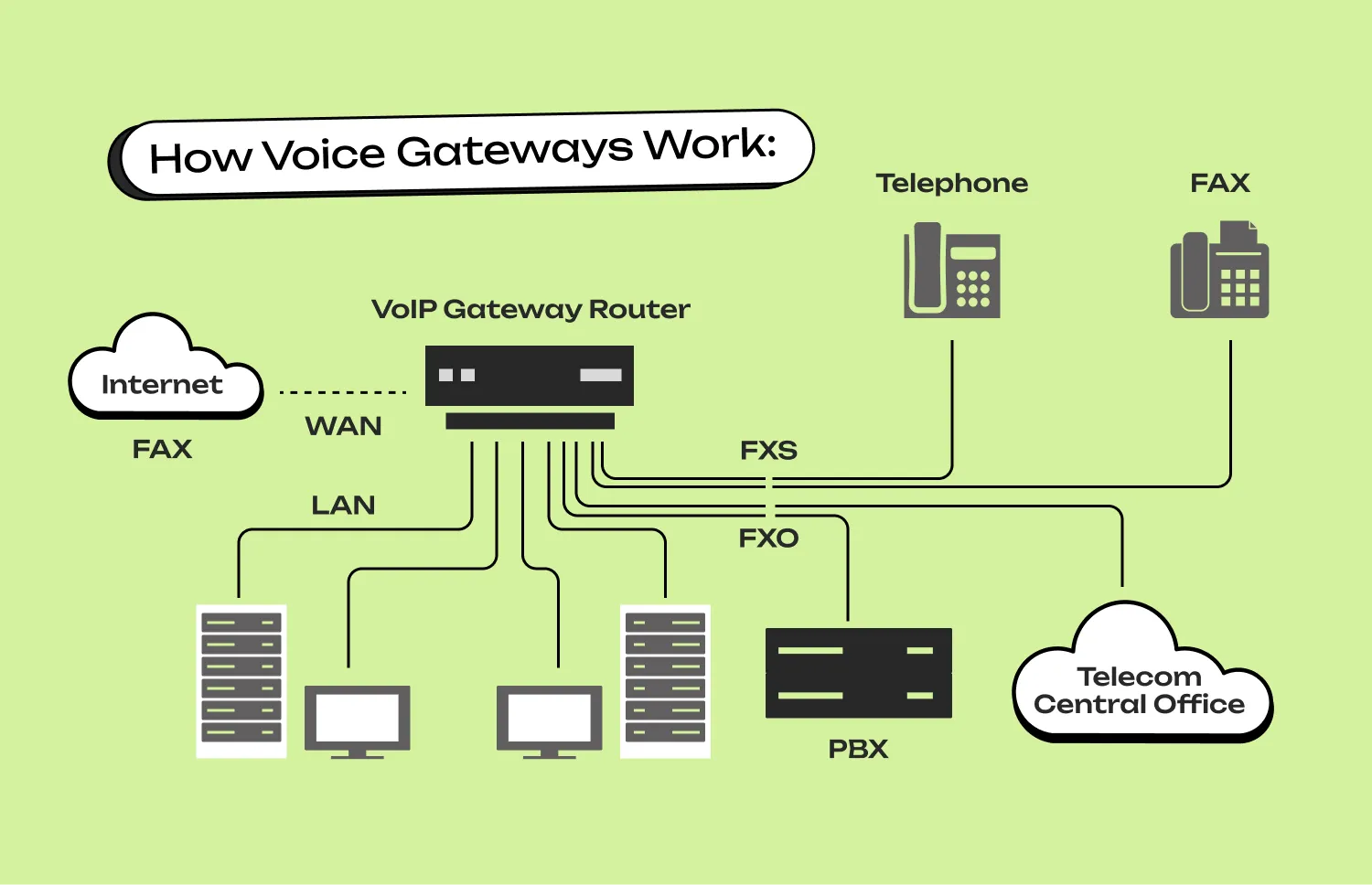Thank you!
The form has been successfully submitted
The form has been successfully submitted
Oops! Something went wrong, please try again

VoIP technologies offer numerous advantages over analog communication. VoIP calls are significantly cheaper - especially if your clients or partners are located abroad. Additionally, digital telephony enables multiple simultaneous calls on a single number and allows you to scale your phone lines quickly.
However, there’s a catch: switching entirely to VoIP can be unprofitable, especially if your business currently relies mostly or exclusively on analog equipment. Building a VoIP infrastructure from scratch can be both time-consuming and costly.
In such cases, a voice gateway can help you bridge the gap between analog and digital communication without overhauling your entire telephony infrastructure.
A voice gateway, or VoIP gateway, is a device that connects to analog telephone equipment and converts analog network communications into data packets for VoIP. Thanks to this gateway, you can use IP protocols for calls without purchasing additional VoIP hardware.

First, the gateway must be connected to all analog devices, SIP lines, and DID numbers. If everything is configured correctly, the gateway will be ready to convert analog signals into digital ones and vice versa.
Analog telephony uses circuit-switched networks that are inherently incompatible with VoIP. A gateway:
At the same time, the gateway receives incoming data packets from the other side of the conversation and converts them back into analog signals.
Using a gateway for VoIP integration enables connection with cloud PBXs, SIP trunking, and DID numbers. You can also configure:
Integrating analog telephony with VoIP technologies allows you to:
Moreover, VoIP itself offers additional business benefits such as:

Installing a voice gateway is ideal for businesses that:
Typical examples include hotels, retirement homes, and cruise ships - all common use cases for voice gateway manufacturers.
Business-grade voice gateways come in many variations and configurations. To choose the best option for your needs, consider the following steps:
Voice gateways remain a practical solution for businesses with analog infrastructure and will continue to exist until analog communication disappears completely. However, the future of business communication lies in VoIP - with cloud PBXs, virtual numbers, and SIP trunking leading the way.
DID Global helps businesses in 150+ countries stay connected without excessive costs or operational headaches. Automate key communication processes and optimize your expenses with our virtual PBX solutions.